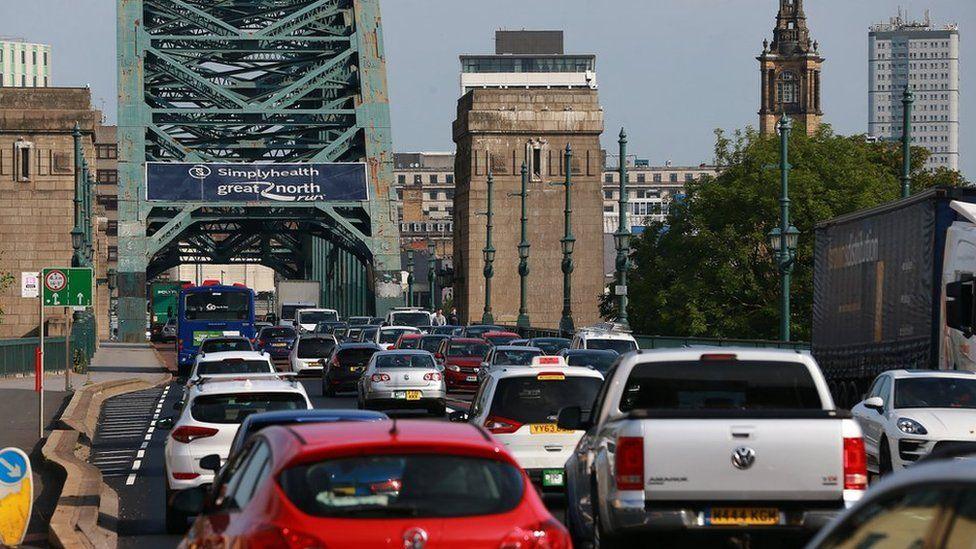Newcastle Clean Air Zone charge 'not a tax-raising scheme'
- Published
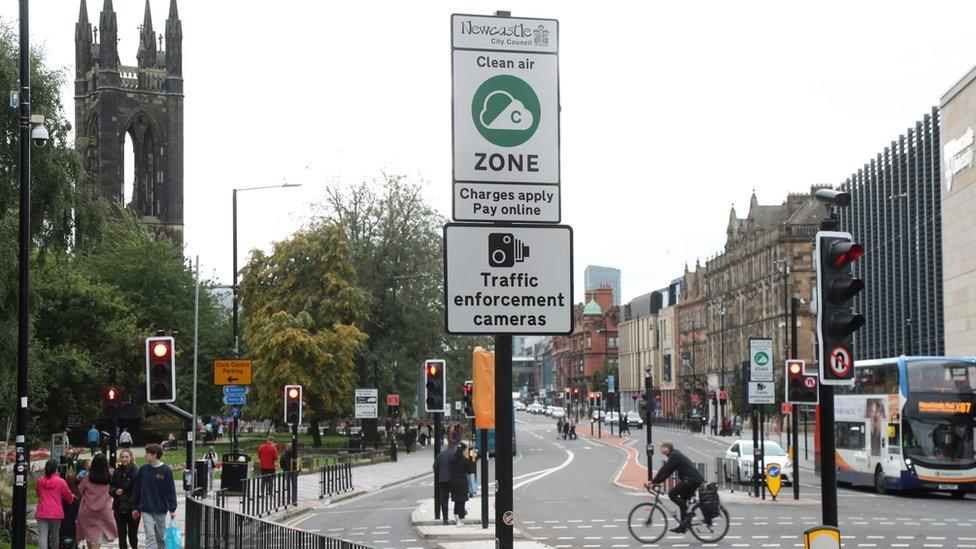
Dozens of signs have been put in place notifying drivers of the scheme
Daily charges for some vehicles entering Newcastle city centre are not a tax-raising scheme for the council, its leader has said.
Launching on 30 January, the Clean Air Zone (CAZ) will cover most of the city centre.
Private cars will be exempt but older taxis will be charged £12.50 per day and non-compliant lorries, buses and coaches will have to pay £50 each day.
Opponents warn it could deter people from visiting the city.
They also claim recently-installed signs advertising the zone are confusing as they do not specify who could be charged.
Vans and light goods vehicles will not face charges until July to allow extra time for vehicle replacements, which are currently affected by a national supply shortage.
Signs to be 'updated'
Council leader Nick Kemp, of Labour, told BBC Radio Newcastle: "This has been well discussed and is a government directive imposed on us in 2019.
"We've engaged with more than 20,000 people and businesses directly and the signage will be updated regularly from now to the 30th [of January], informing people who will be penalised and those who won't.
"We have [faced] the criticism that this is a tax-raising scheme. It's not. Money generated through fines will go towards running the scheme and road improvements. We can't spend it elsewhere.
"We've been told, as have other cities across the country, we have to cut air pollution. More than 36,000 people die in the UK every year due to poor air quality. That includes hundreds on Tyneside. This is a move to address that."
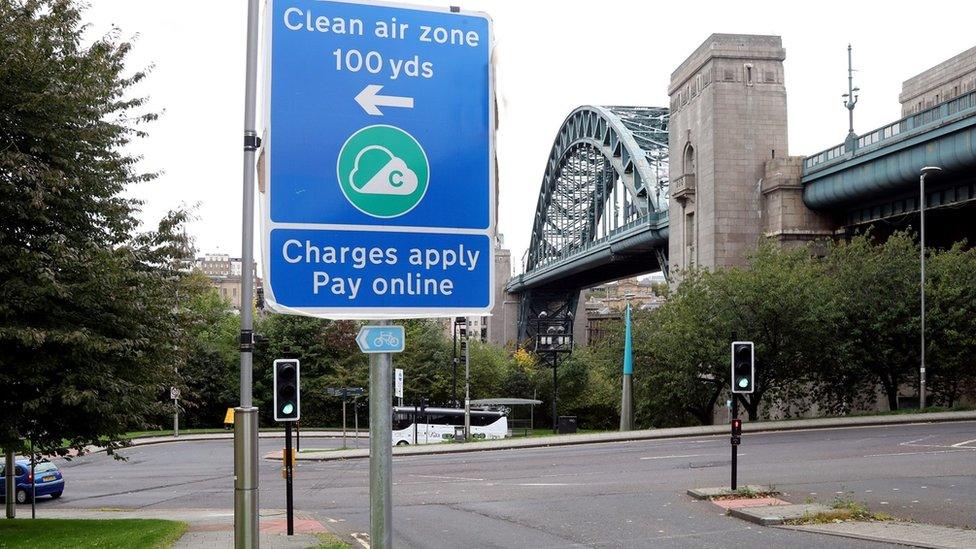
The zone will cover most of the city centre, including the Tyne, Swing, High Level and Redheugh bridges
One taxi driver told the BBC he faced a choice between paying £4,500 per year or taking on about £27,000 in debt to pay for a new car.
Private cars 'least polluting'
Mr Kemp said the council had been "working with the taxi trade and other businesses to ensure they are aware of all the support available to them".
He said almost 1,300 applications for financial support to upgrade or replace older vehicles, external had been submitted so far and a £50 seven-day pass would be available to lower costs for taxis.
Asked why private cars would be exempt from charges, he explained the authority concluded they were "the least polluting" type of vehicle and that it would not be appropriate "in a cost of living crisis to impact upon people who are really struggling".

Follow BBC North East & Cumbria on Twitter, external, Facebook, external and Instagram, external. Send your story ideas to northeastandcumbria@bbc.co.uk, external.
- Published3 October 2022
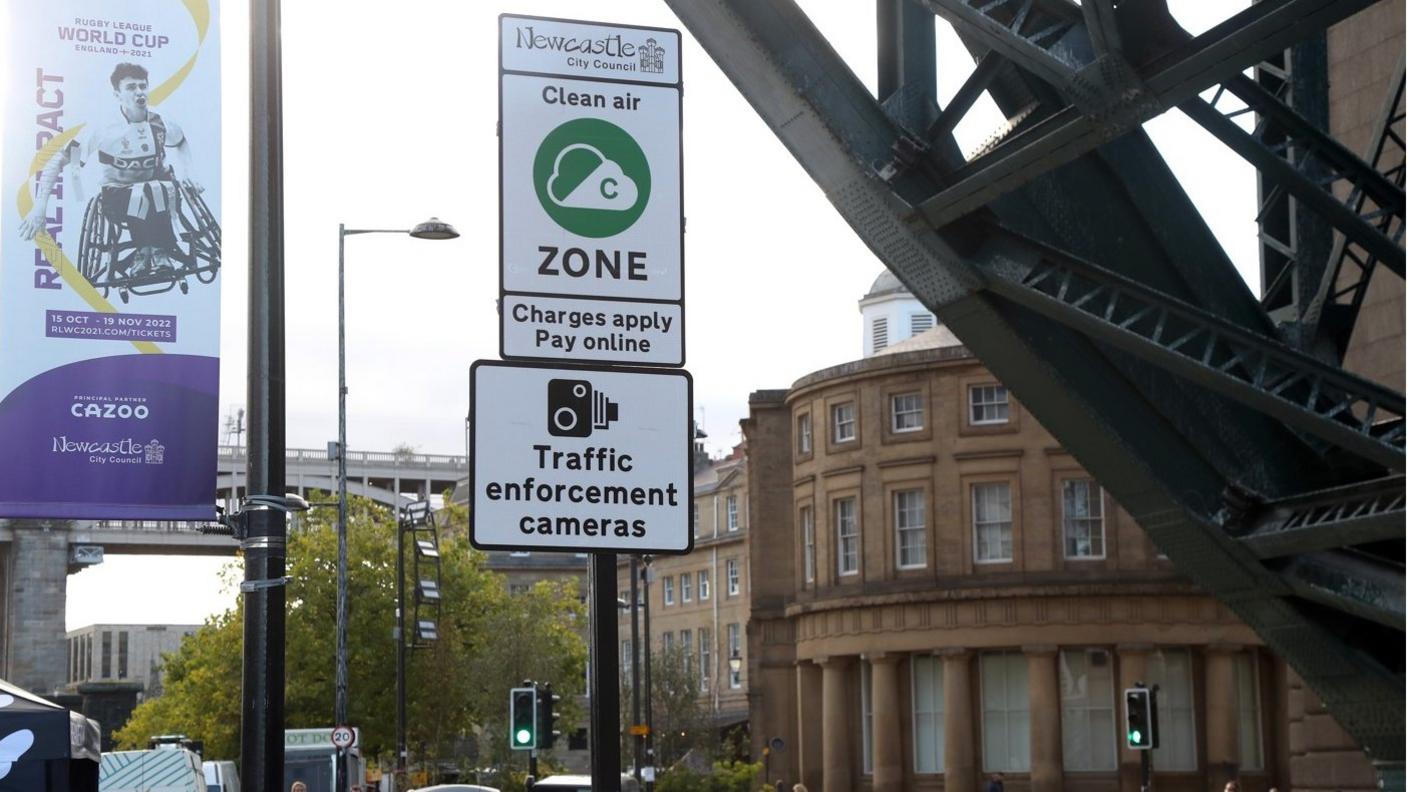
- Published19 July 2022
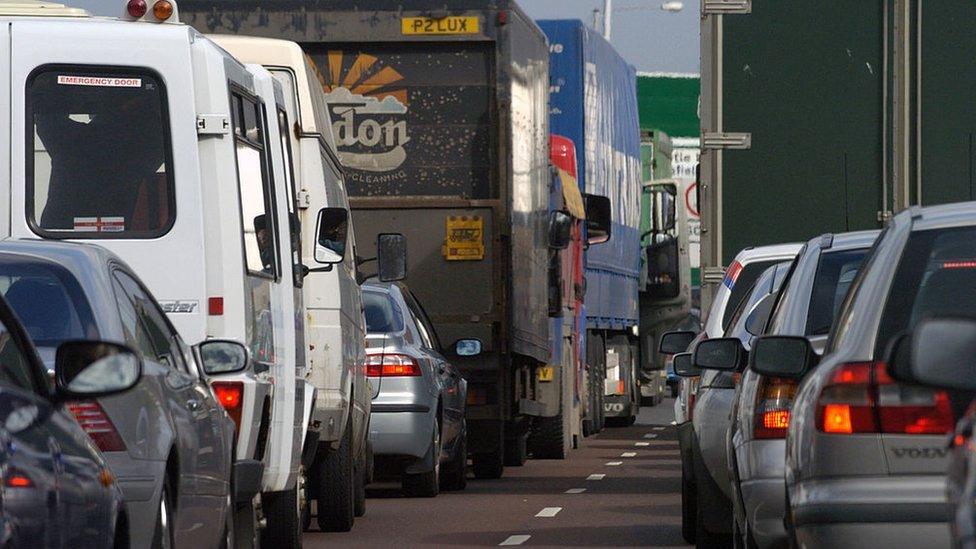
- Published17 February 2022
